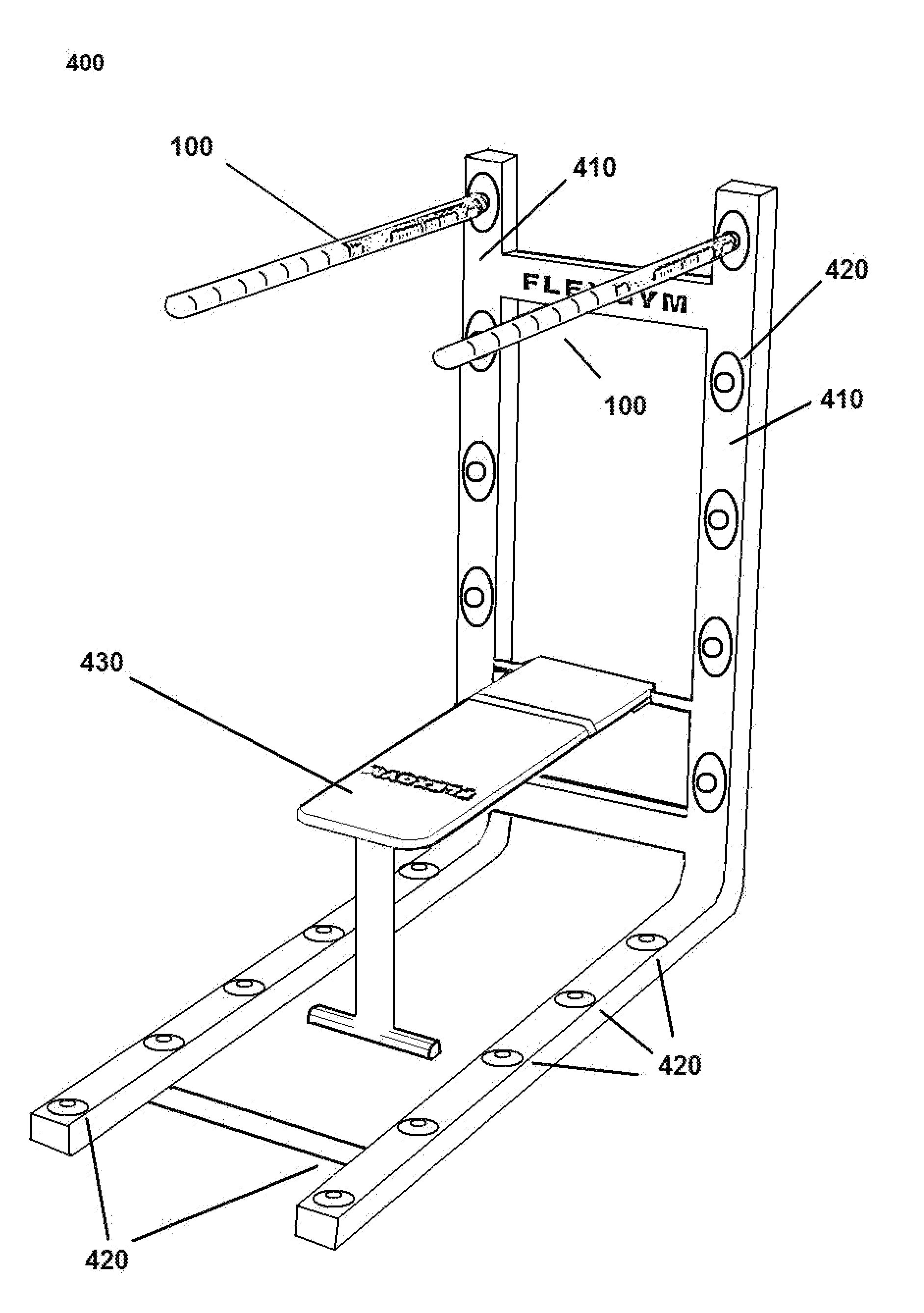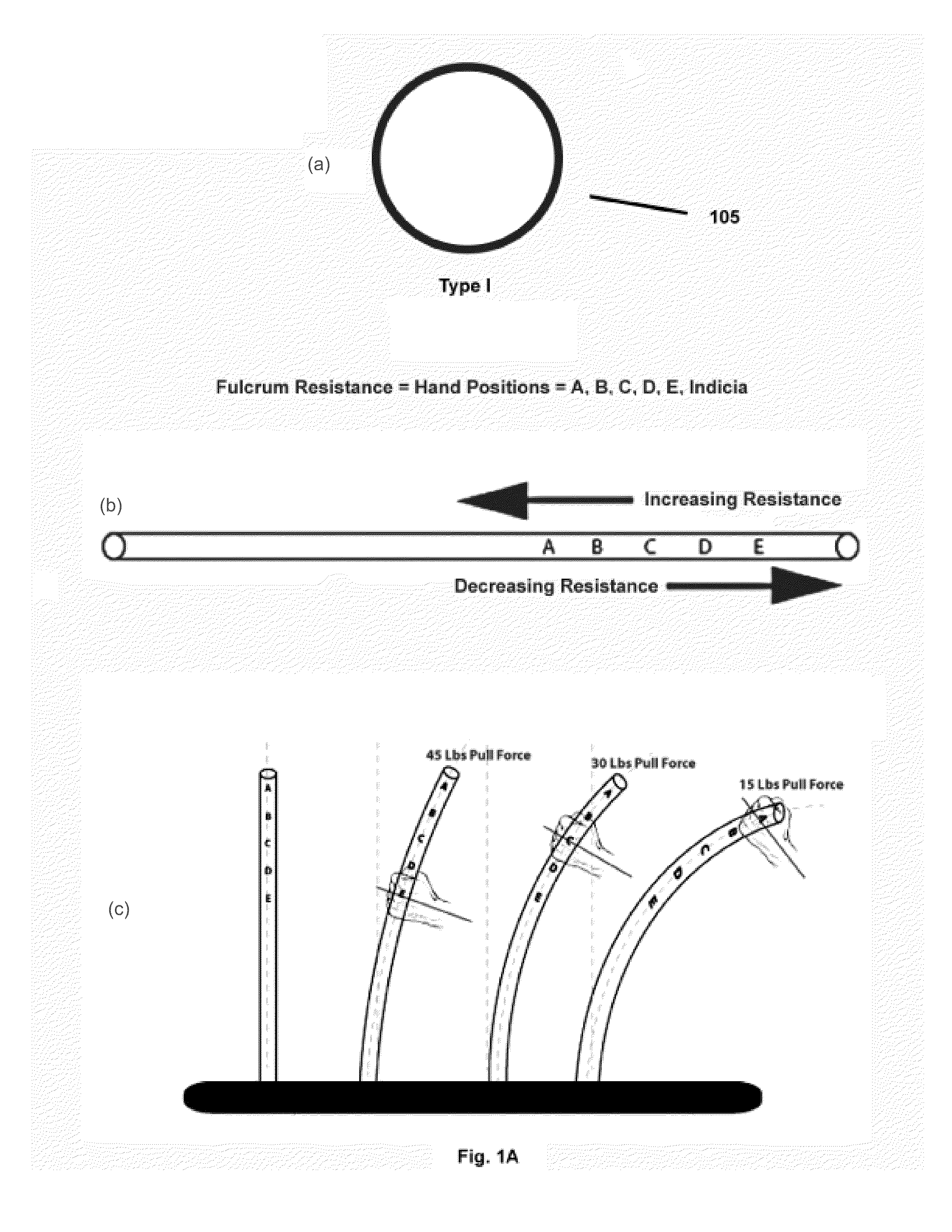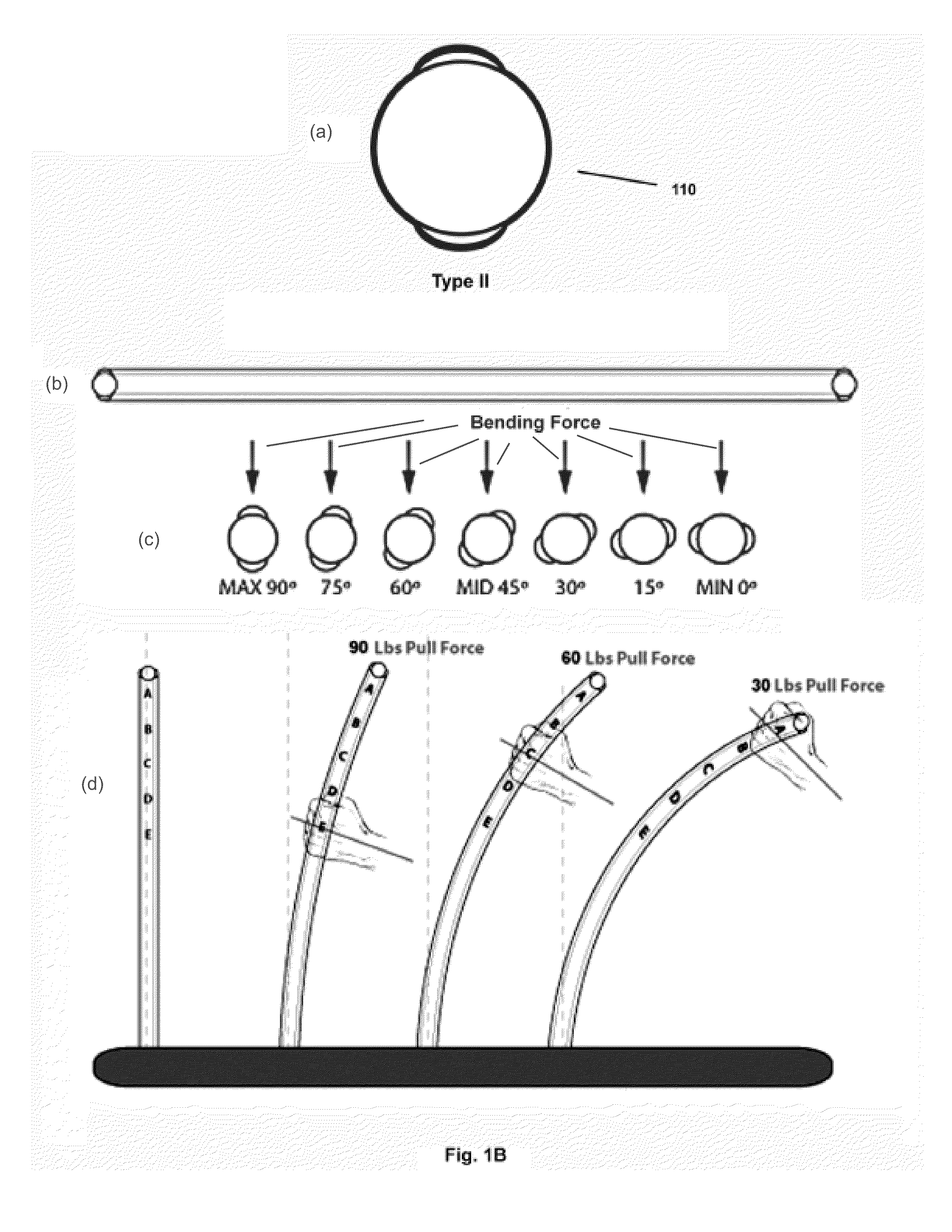Methods for Adjusting Stiffness and Flexibility in Devices, Apparatus and Equipment
a technology of stiffness and flexibility, applied in the field of equipment, can solve the problems of inability to change the characteristics of subtle changes in the stiffness or flexibility characteristics of sporting or fitness equipment may not be available between different pieces of sporting equipment, and achieve the effect of constant and consistent flex adjustmen
- Summary
- Abstract
- Description
- Claims
- Application Information
AI Technical Summary
Benefits of technology
Problems solved by technology
Method used
Image
Examples
Embodiment Construction
[0054]The object of the present invention is to adjust the flexibility and thereby the resistance of a rod by hand positioning in relationship to the fulcrum of rod; or by bending a rod and spine within the shaft; or by bending a single solid rod; or both the bending of an outer beam and an inner beam in another example. This affects the longitudinal flex and the kick or hinge point of flexure where maximum flexure bending forces arise, depending on the hand position or anchor point in relationship to the fulcrum.
[0055]A shaft includes any tube-like structure by itself, attached to the outside of another surface or incorporated within a structure. Examples of a tube-like shaft by itself include hockey sticks, golf clubs, lacrosse sticks, pole vaulting poles, fishing rods, sailboard / sailboard masts, canoe / kayak paddles or oars, baseball bats, archery bows, tennis racquets and exercise machine tensioning rods. Examples of products to which a tube-like shaft might be attached externall...
PUM
 Login to View More
Login to View More Abstract
Description
Claims
Application Information
 Login to View More
Login to View More - R&D
- Intellectual Property
- Life Sciences
- Materials
- Tech Scout
- Unparalleled Data Quality
- Higher Quality Content
- 60% Fewer Hallucinations
Browse by: Latest US Patents, China's latest patents, Technical Efficacy Thesaurus, Application Domain, Technology Topic, Popular Technical Reports.
© 2025 PatSnap. All rights reserved.Legal|Privacy policy|Modern Slavery Act Transparency Statement|Sitemap|About US| Contact US: help@patsnap.com



